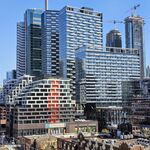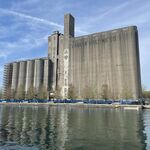The point is they are trying to solve a problem that is fundamentally about wages not keeping up with inflation by artificially driving prices down.
Bank of Canada Total CPI: +1.5% y/y
Bank of Canada Core CPI: +2.1% y/y
Statistics Canada Average Hourly Wages (Full-time employment): +1.8% y/y
Teranet National Composite (11) House Price Index: +8.98% y/y
Teranet National Composite (6) House Price Index: +10.05% y/y
Full time wage increases in Canada match the rate of inflation within Canada, ~1.8%. According to Teranet, housing prices are up 9-10%.
The problem is not wage increases. Artificially increasing wages would cause further inflation and nobody would be better off. There are external factors that are pushing real estate up beyond the rate of inflation. Some of them are low interest rates, lack of availability, and foreign capital.
Changing interest rates affects a lot more than just housing and would make it harder for local buyers to afford a house. When a large quantity of foreign capital is sent to Canada, it's usually enough to purchase outright. Increased interest rates would essentially make it harder for locals to buy and easier for foreign entities.
Increasing the supply of housing can only be done so fast and should be done responsibly. It takes years for housing to become available for end use and developers have a limited amount of resources/financing. They aren't going to build to the point where they know there is oversupply, as this would bankrupt them.
If measures were taken to control foreign capital, it would directly target areas where prices are being pushed up by foreign capital. This means Vancouver and Toronto, in addition to many other areas. It would help to alleviate upward pricing pressures.
I don't think people still expect the same housing dynamics as their parents had, but at this point it's getting difficult for an average earner to afford even a 1 bedroom condo (without any help from relatives or the lottery). Quality of life is now decreasing substantially as local buyers have had to stretch themselves incredibly thin to afford even the smallest of condos, let alone houses. These come with useless kitchens, bad layouts, and space that is insufficient to raise a family. Some people move farther out of the city to afford a house and they spend a huge amount of time commuting to/from work.
I'm all for foreign investment, but it should be productive. Money should come here to buy businesses and invest in R&D. It should be used to purchase residential housing for those who come here to study, then work, pay taxes, and produce for the economy. Right now, a lot of it is coming here in a flight to safety and landing in the real estate market.




